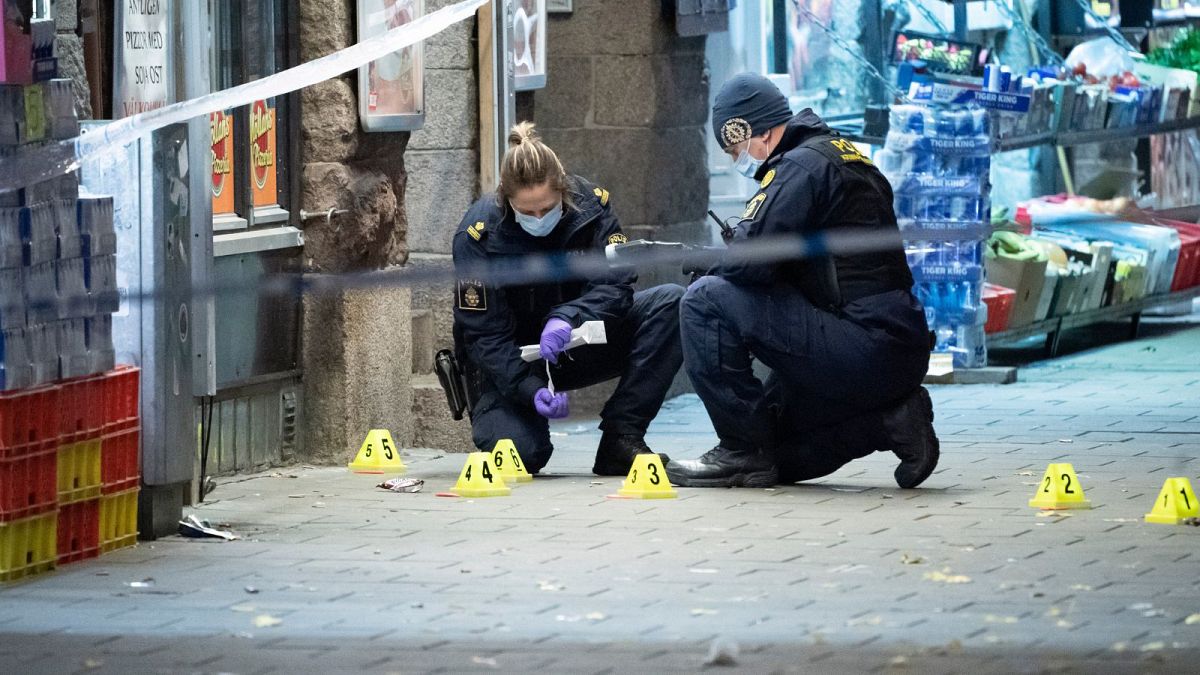In the past year, Sweden has experienced a significant increase in gang-related shootings and bombings, with the violence spilling over into neighboring countries such as Denmark and Norway. Swedish Prime Minister Ulf Kristersson recently met with Danish Prime Minister Mette Frederiksen to discuss strategies to combat the rising crime and violence in their respective countries. Gang-related incidents in Copenhagen have been attributed to young immigrants recruited by Swedish gangs, highlighting the cross-border nature of the issue. Sweden now has one of the highest per capita rates of gun crime in the EU, with many perpetrators being under the age of 18. In 2023 alone, 53 people were killed in shootings in Sweden, emphasizing the urgency of addressing the growing gang violence problem.
The close relationship between foreign policy and criminalization has become evident in the context of organized crime in Sweden and Denmark. Prime Minister Frederiksen expressed concern over the overrepresentation of young men from non-Western backgrounds in criminal activities, noting that this trend is unsustainable. In recent months, there have been at least 25 instances of young Swedes being hired by Danes to carry out crimes in Denmark, involving the use of firearms, bombs, and grenades. In response to the escalating threat from gangs, Denmark has tightened its border controls with Sweden, while the Swedish government has announced the establishment of a cross-border police hub with Finland, Norway, and Denmark in Stockholm.
The collaboration between Nordic leaders aims to improve cross-border communication and coordination among local and national authorities to address the challenges posed by gang violence and criminal activities. By enhancing cooperation and sharing information, the Nordic countries seek to combat the spread of organized crime and ensure sustainable migration to the EU and the Nordic region in the future. The establishment of a joint police hub in Stockholm reflects a commitment to enhancing security and law enforcement efforts in the face of evolving threats from transnational criminal networks. Efforts to strengthen border controls and enhance cooperation at the regional level underscore the importance of a coordinated approach to addressing the root causes of gang violence and criminal activities.
The surge in gang-related violence in Sweden has raised concerns about the impact of organized crime on communities and the need for enhanced collaboration between countries to address the root causes of criminal activities. The involvement of young immigrants in gang-related incidents highlights the complex societal and economic factors driving the recruitment of vulnerable individuals into criminal networks. By addressing the underlying issues fueling gang violence, such as social exclusion, unemployment, and lack of educational opportunities, policymakers can work towards preventing the cycle of crime and violence that threatens the safety and security of communities in Sweden and beyond. The establishment of a cross-border police hub and increased cooperation between Nordic countries signal a shared commitment to tackling the challenges posed by organized crime and ensuring a safer and more secure future for all residents.
The escalation of gang violence in Sweden has underscored the need for a comprehensive and coordinated approach to combating organized crime and addressing the root causes of criminal activities. The cross-border nature of gang violence requires close cooperation between neighboring countries to effectively tackle the problem and prevent the spread of criminal networks across borders. By strengthening border controls, enhancing communication between law enforcement agencies, and addressing the underlying factors driving gang violence, Nordic countries can work together to create a safer and more secure environment for their citizens. The commitment to improving cross-border cooperation and supporting sustainable migration reflects a shared vision for a brighter future free from the threats of organized crime and violence.
In conclusion, the surge in gang-related violence in Sweden has prompted a coordinated response from Nordic leaders to address the growing threat of organized crime and gang violence. By establishing a cross-border police hub and enhancing communication and cooperation between countries, Sweden, Denmark, Norway, and Finland are working together to combat the spread of criminal networks and prevent the escalation of gang violence in the region. The commitment to addressing the root causes of gang violence, supporting sustainable migration, and improving security measures underscores the shared commitment of Nordic countries to creating a safer and more secure future for all residents. Through collaborative efforts and a comprehensive strategy, Nordic countries can effectively tackle the challenges posed by organized crime and ensure the safety and well-being of their communities.










